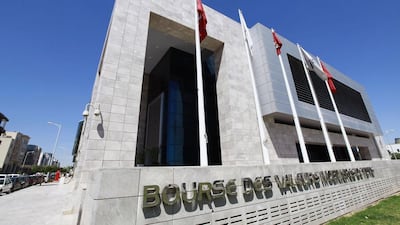The International Monetary Fund urged Tunisia to cut fuel subsidies and trim its bloated public sector wage bill to help rein in its budget deficit.
Increasing domestic fuel prices in line with international market rates and raising the retirement age are vital to containing government debt, it said in a statement on Saturday, following an IMF team meeting with Tunisian government officials last week.
“"The public sector wage bill is very large and any further wage increase would be very difficult to sustain, unless growth surprises on the upside,” the IMF said. “Similarly, raising the retirement age and additional parametric reforms on pensions are crucial to contain the deficits in the social security system.”
The North African country has embarked on an IMF-backed plan to cut its budget deficit and boost growth. It is under pressure to deliver on reforms linked to its $2.9 billion IMF loan. The government set a target to raise economic growth to 5 per cent by 2020 versus an expected rate of 2.5 per cent this year. It intends to halve the budget deficit to 3 per cent of GDP by that year from 6 per cent in 2017.
The country is cited as prime example of the Arab uprisings' success after a wave of protests ousted former president Zine El Abidine Ben Ali in 2011. However, strikes, protests and political squabbles hindered the economic revival Tunisians longed for after toppling the Ben Ali government seven years ago.
The IMF warned that Tunisia is facing rising risks to its macroeconomic stability as inflation rose rapidly to 7.6 per cent in March.
The team said it agrees with the central bank that “anchoring expectations through additional increases in the policy rate will be crucial if inflation does not come down quickly.”
A “more flexible exchange rate” will help rebuild international reserves and continue to encourage exports, the IMF noted.
Despite mounting macroeconomic risk, the country is seeing some progress. Economic growth is “picking up” driven by a good agriculture season, increases in investment and an early recovery in exports, the IMF said.
Tunisia and the IMF will continue talks during spring meetings in Washington from April 20 to April 22 to discuss near-term economic reform priorities.


